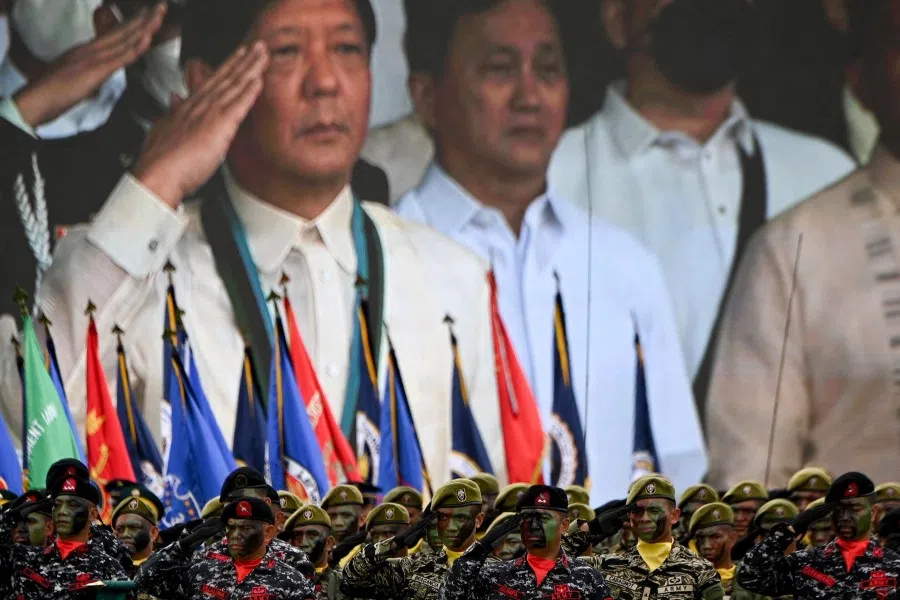Philippine Neutrality: The Only Constitutional and Moral Path in the Taiwan Strait Crisis
By Atty. Arnedo S. Valera
The recent pronouncement of President Ferdinand “Bongbong” Marcos Jr. that the Philippines “will have to get involved” should an all-out war erupt between the United States and China over Taiwan is a grave misreading of our Constitution, a dangerous abandonment of our independent foreign policy, and a reckless invitation to embroil our nation in a war that is neither ours to fight nor win.
The Philippines is not a military appendage of any superpower. Our sovereignty and national interest demand that we act as an independent nation—friends to all, enemies to none—and not as a political pawn in the great power rivalry between Washington and Beijing.
The Constitutional Mandate for Peace and Neutrality
The 1987 Philippine Constitution is explicit in its rejection of war as an instrument of national policy:
Article II, Section 2: “The Philippines renounces war as an instrument of national policy, adopts the generally accepted principles of international law as part of the law of the land and adheres to the policy of peace, equality, justice, freedom, cooperation, and amity with all nations.”
Article II, Section 7: “The State shall pursue an independent foreign policy. In its relations with other states, the paramount consideration shall be national sovereignty, territorial integrity, national interest, and the right to self-determination.”
By constitutional design, our foreign policy is anchored not on subservience to the military objectives of other nations but on the preservation of peace and the protection of the Filipino people. The President’s statement suggesting inevitability in joining a Taiwan war undermines both principles.
International Law and the Principle of Neutrality
Under international law, particularly the Hague Convention V of 1907 and customary international norms, a neutral state is prohibited from participating in hostilities between belligerent states. Neutrality safeguards a nation’s sovereignty while promoting peaceful resolution of disputes.
Moreover, the Philippines is a State Party to the Charter of the United Nations, which in Article 2(4) prohibits the threat or use of force against the territorial integrity or political independence of any state. Article 33 mandates peaceful settlement of disputes through negotiation, mediation, and arbitration—not through military alignment.
In the case of Taiwan, the Philippines has long adhered to the One China Policy, recognizing the People’s Republic of China as the sole legal government of China. Intervening militarily in a conflict that Beijing deems a domestic matter could constitute a violation of that policy, invite retaliatory measures, and escalate tensions in the region.
National Interest Over Superpower Rivalry
The President’s framing—that the Philippines “will have to” get involved—wrongly assumes that geography and alliance commitments erase our agency. The Mutual Defense Treaty (MDT) of 1951 with the United States does not compel the Philippines to participate in an offensive war unrelated to our own defense. The MDT is triggered only by an armed attack on the Philippines, its metropolitan territory, or its armed forces in the Pacific. A U.S.-China war over Taiwan does not automatically meet that threshold unless Philippine territory is directly attacked.
Instead of preparing to serve as a forward base in a U.S.-China war, the Philippines must focus on:
Protecting the over 150,000 Overseas Filipino Workers (OFWs) in Taiwan through humanitarian and evacuation measures;
Strengthening our self-reliant defense posture; and
Building a regional bloc for peace with ASEAN partners to defuse tensions in the Taiwan Strait.
The Moral Imperative of Peace
War in the Taiwan Strait would devastate the Asia-Pacific region, cripple economies, and endanger millions of lives—including those of Filipinos in Taiwan and across East Asia. Dragging the Philippines into such a conflict would not protect our people; it would place them in the direct line of fire.
Our leaders must heed the warning of history: small nations that serve as staging grounds for great power conflicts pay the heaviest price. The Philippines should not allow itself to become a proxy battlefield for the ambitions of others.
A Call for a Declaration of Neutrality
It is both constitutional and moral for President Marcos Jr. to affirm and declare the Philippines’ neutrality in the Taiwan issue—publicly, unequivocally, and in coordination with our ASEAN neighbors. This neutrality must be backed by diplomatic initiatives urging all parties to commit to dialogue, confidence-building measures, and the avoidance of unilateral military actions.
The Philippines’ highest duty is to its own people—not to the geopolitical designs of any foreign capital. Our legacy as a nation should be that of a peacebuilder, not a pawn.
In these perilous times, the Filipino people must remind their leaders: sovereignty is not merely the right to decide; it is the courage to decide for ourselves. Let us stand firm on our constitutional commitment to peace, uphold an independent foreign policy, and refuse to be dragged into wars that are not our own.
Peace is not weakness. Neutrality is not surrender. It is the highest assertion of our independence. #
Atty. Arnedo S. Valera is the executive director of the Global Migrant Heritage Foundation and managing attorney at Valera & Associates, a US immigration and anti-discrimination law firm for over 32 years. He holds a master’s degree in International Affairs and International Law and Human Rights from Columbia University and was trained at the International Institute of Human Rights in Strasbourg, France. He obtained his Bachelor of Laws from Ateneo de Manila University. He is an AB-Philosophy Major at the University of Santo Tomas ( UST). He is a professor at San Beda Graduate School of Law (LLM Program), teaching International Security and Alliances

Comments
Post a Comment